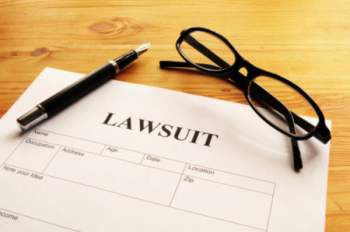
Rights of the Accused

Understand the Rights of the Accused
The Rights of the Accused is a group of political and civil rights that applies to an individual who is accused of a crime. The Rights of the Accused start when he or she is first arrested and charged to when the individual is either acquitted or convicted. The Rights of the accused are usually based on the idea of "innocent until proven guilty" and are a part of due process.
In the United States, the Rights of the Accused are guaranteed in the Bill of Rights in the Constitution. More specifically, these rights are seen in the 4th, 5th, 6th, and 8th Amendments. When a person is arrested and charged with a crime, the individual is guaranteed rights aimed at insuring that the proceedings which follow are fair.
The Writ of Habeas Corpus
In all criminal cases, the burden of proof to prove a case is on the government to justify an arrest and detention of a criminal suspect. Article I, Section 9 of the United States Constitution guarantees the opportunity of a writ of habeas corpus. This is a directive from a court that requires the government to justify the citizen’s imprisonment. Because this guarantee, the person cannot be held for more than a limited period of time without being charged formerly with a crime.
Trial by Jury
One of the most important rights in the Rights of the Accused of a person formally charged with a crime is the right to a trial by jury. This right of the accused is guaranteed in Article III of the United States Constitution as well as the Sixth Amendment. A person who is accused of a crime has the right to have their innocence or guilt determined by a panel made up of fellow-citizens. In a federal case, formal charges against the individual cannot even be filed unless a grand jury has first convened and issued an indictment against the person. Both the jury trial and grand jury are there to protect private citizens from police officers who are overzealous, or from judges and prosecutors. By interjecting the judgment and wisdom of other private citizens into the legal process, an effective check is created on the law enforcement and on the judicial system involved. While jury trials are a guaranteed right by the Constitution, there are many instances where trial can be conducted without a jury, such as an individual waiving his or her right to a jury trial.
Self-Incrimination
The Fifth Amendment of the Constitution states that no individual shall be forced in a criminal case to be a witness against himself in the case. However, this does not mean that they can avoid testifying just to avoid embarrassment or a conviction. Instead, they must have a valid concern that a testimony will contribute to a conviction. Individuals accused of crimes as well as witnesses involved in legal proceedings will often use this right by claiming their Fifth Amendment rights or pleading the fifth.
Out of the different Rights of the Accused, this one is extremely fundamental to the system of constitutional rule. In many situations, an investigator or prosecutor will listen to an individual in exchange for immunity rather than trying to prosecute them based on a testimony. Prosecutors often grant immunity to individuals suspected of committing lesser crimes if the person’s testimony can help convict a more notable suspect of an even more serious crime.
Double Jeopardy
Under the Rights of the Accused, an individual accused of a crime is also protected from double jeopardy. This comes from the Fifth Amendment of the Constitution which states that no individual shall put on trial or charged for the same offense twice. For example, if the result of a trial by jury is an acquittal, no further legal action can be taken against the defendant for that specific crime. The exception to this occurs when a defendant challenges the guilty conviction and is then granted a new trial, but this is usually only granted if there was a procedural error in the first trial.
Another exception to the double jeopardy rule is that it is possible for an individual to be tried in criminal court for a certain crime and then be later sued in civil court for the damages caused by the same criminal act in question. The rules and laws that are applicable to the two legal systems are different enough that they are considered distinct in regards to the Fifth Amendment. Furthermore, an individual can also be tried for different crimes that were committed in the course of a specific action or set of actions. Because they are legally defined as separate crimes, a second trial would not go against the double jeopardy provision of the Rights of the Accused.
No Cruel or Unusual or Excess Punishments or Fines
Under the Eighth Amendment, the government is forbidden from imposing excessive fines, bail, or punishments which are "cruel and unusual". Under the limitations created by the Constitution, punishments for crimes can include fines or incarceration, but cannot include physically harmful or excessively painful penalties like whippings or branding. The Supreme Court has also interpreted the Eighth Amendment to forbid imprisonment in inhumane or unsanitary conditions.
One of the most important and necessary standards the Supreme Court has created and applied in determining if a fine or punishment violates the Eighth Amendment is by using a test of proportionality. The Supreme Court has ruled that depending on the circumstances, the death penalty can be thought of as cruel and unusual punishment, but only in circumstances death not proportionate to the crime in question.
Search Warrants
The Fourth Amendment of the Constitution forbids the search or seizure of the private property of an individual without a warrant. This means that a government agent or police officer cannot simply enter a home in order to search it or seize evidence unless the proper authority of a judge has been received. When law enforcement is investigating a crime, the person must assemble enough substantial evidence to fully convince a judge that the violation of a person’s privacy and property is necessary and warranted. The standard for showing the need for a warrant is called probable cause.
NEXT: Double Jeopardy





















